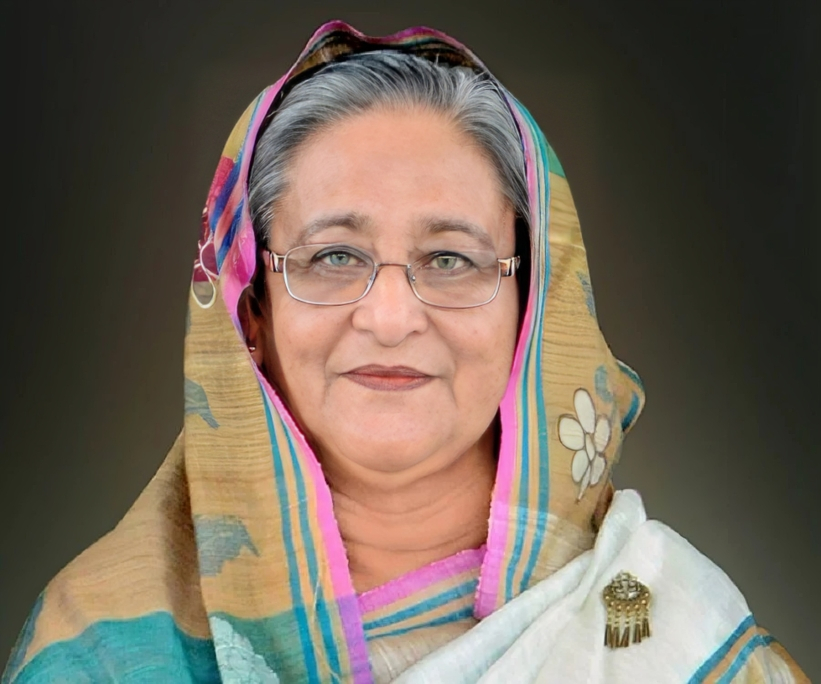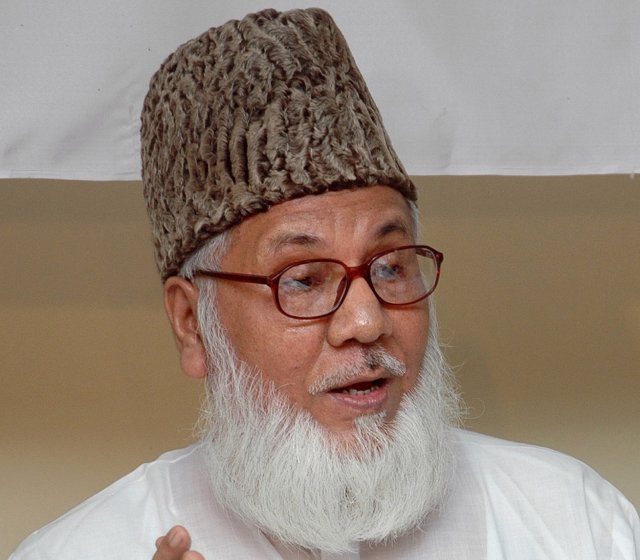The judicial murders in Bangladesh in the name of war crimes through sham trials raise serious legal, moral and political issues. These are obviously a travesty of justice. The 1974 Tripartite Agreement has been grossly violated, this agreement is a legally binding document under which the Bangladesh government has a contractual commitment which it must honour. These trials have all along been marred by abuse of due process of law, serious issues of retrospectivity and denial of justice, as well as violation of Article 14 of International Covenant on Civil and Political Rights. Independent writers like Dr. Sarmila Bose, a Hindu by faith, an Indian by original nationality and an ethnic Bengali researcher in her book ‘Dead Reckoning: Memories of 1971 Bangladesh War’, and authors_Richard Sisson and Leo Rose in their book ‘War of secession: Pakistan, India and creation of Bangladesh’ have duly exposed the claims of war atrocities as trumpeted by Hasina Wajid. These authors maintain that “India had planned interference in the internal affairs of Pakistan. Same was shamelessly acknowledged by Indian Prime Minister Narendra Modi during his visit to India in 2015.
Article 14 of the Tripartite Agreement is quite self-explanatory: “In this connection, the three (foreign) Ministers [of Pakistan, India and Bangladesh] noted that the matter should be viewed in the context of the determination of the three countries to continue resolutely to work for reconciliation. The Ministers further noted that following recognition, the Prime Minister of Pakistan had declared that he would visit Bangladesh in response to the invitation of the Prime Minister of Bangladesh and appealed to the people of Bangladesh to forgive and forget the mistakes of the past in order to promote reconciliation. Similarly, the Prime Minister of Bangladesh had declared with regard to the atrocities and destruction committed in Bangladesh in 1971, that he wanted the people to forget the past and to make a fresh start! Stating that the people of Bangladesh knew how to forgive”.
The original 1973 legislation for the establishment of war crimes had been set aside by Hasina Wajid’s father and Bangladesh’s founding father Mujibur Rehman after a tripartite agreement signed in April 1974 for the repatriation of war prisoners. Rehman had then agreed that in the interest of regional peace, no one would be put on trial for alleged crimes committed during the 1971 war.
Maybe the time has come for Pakistan to re-open the trial of ‘Agartala Conspiracy’ case and take the matters to their logical conclusion by exposing the perpetrators of the East Pakistan tragedy in toto. As a side benefit, this would effectively checkmate Bangladesh’s rash course. Pakistan should also make a simultaneous beginning by raising the issue of war crimes trials by Bangladesh at the OIC, International Court of Justice and UN Human Rights Council. The sentiment at most of these forums is overwhelmingly supportive of Pakistan’s point of view.
since the beginning of the sham war crime trials in Bangladesh, several international organisations human rights groups and international legal figures have raised objections to the court composition, proceedings, fairness, transparency, and harassment of defence lawyers and witnesses. Only those defence witnesses are permitted to appear in the court who are approved (read compromised through coercion) by government agencies. the internat’1onal community has objected to the steps taken by the government of Bangladesh to impose restrictions on the independence of these trial courts. Phil Robertson, deputy director of Human Rights Watch’s Asia division, said: “Nizami’s trial was neither free nor fair, as the tribunal cut corners on fair-trial standards.” UN Secretary General Ban Ki-moon, human rights organisations, and US Secretary of State John Kerry and other foreign notables’ had asked Sheikh Hasina to stop executions.
Motee-u-Rahman Nazami is the fifth senior official from opposition parties to have been executed since 2013 for alleged war crimes during the 1971 war. After the confirmation of death sentence by the Supreme Court, Nizami’s lawyer had said that he [Nizami] would not seek any pardon as it would require him to admit to crimes he was convicted of. Earlier four victims also did not seek Presidential clemency for the same reason and all of them bravely faced the trials and exposed the shortfalls of proceedings.
In the wake of Nizami’s hanging, Pakistan has pledged to raise the issue of executions of Jamaati-lslami (JI) leaders in Bangladesh at appropriate United Nations forums, including its Human Rights Council (UNHRC), besides vowing to take the matter up at diplomatic level with other countries. Condemning the Bangladesh executions, Adviser to the Prime Minister on Foreign Affairs Sartaj Aziz asked Bangladesh to recon sider its policy “not just in the interest of other ·Muslim countries, but also Its own”. The Government might as well walk the talk.

The loudest protest came from Turkey: “I condemn the mentality that sentences to death a Mujahid, who is over the age of 70 and who we believe has done no earthly sin. I think that such proliferation of hatred there, and the ordering of such death sentences despite our repeated initiatives, is neither fair governance nor a democratic mentality,” said President Erdogan on May 15.
After Bangladesh gained independence, the JI was banned and most of its leaders went into exile. It was only after the 1975 military coup, which brought Major General Ziaur Rahman to power, that the ban was lifted and many JI leaders returned. Some of these leaders, including Nizami, became ministers in the two BNP-led regimes (1991-96 and 2001-2006). The Tribunal has executed JI leaders mainly for their alliance with BNP, but under the cover of so called war crimes.
Their only crime was their loyalty to Pakistan and the two-nation theory. They were executed for their love for Pakistan. Nizami’s only sin was upholding the constitution and laws of Pakistan-before the birth of Bangladesh. Jarraat-e-lslami Ameer Sirajul Haq led hundreds of workers of his party at a funeral-in absentia arranged by his party for Nizami in Lahore. He deplored that the Pakistan government had not made any serious effort to stop Nizami’s hanging.
Clashes erupted in Bangladesh after Nizami’s execution. Earlier, executions of Jamaat leaders in 2013 had triggered the country’s deadliest violence in decades; around 500 people were killed, mainly in clashes between the JI protestors and police. Tens of thousands of Jamaat supporters have since been arrested or detained without charge.
As Hasina failed to perform well during earlier terms of governance, she tried to win the 2014 elections on the basis of hate-vote and vindictive politics. However, there is strong polarisation in Bangladesh, and anti-Indian sentiments have surged due to various reasons. With turmoil and anarchy in Bangladesh, India stands to gain. The fact is now universally admitted by writers and intellectuals throughout the world that Pakistan was dismembered through an international intrigue, India having played an active role by creating Mukti Bahini that stirred chaos and anarchy. And when civil war erupted, India invaded former East Pakistan. Under the circumstances, it was indeed the responsibility of the then Pakistani government to act and control the indiscriminate massacre by Mukti Bahini-lndia trained rebel gangsters. During these difficult times Jamaat-i-lslami, Muslim League and other patriot political entities extended a helping hand to the legitimate government of Pakistan.
Over the years, the people of Pakistan and Bangladesh had for gotten the bitterness of the past and they wish to move forward to play their role for peace and prosperity in the region. Pakistan and its people have been congratulating Bangladesh and its people on its Independence Day and other national events. For her ulterior political motives, Hasina is reverse paddling the process by re-scratching the healed wounds.




